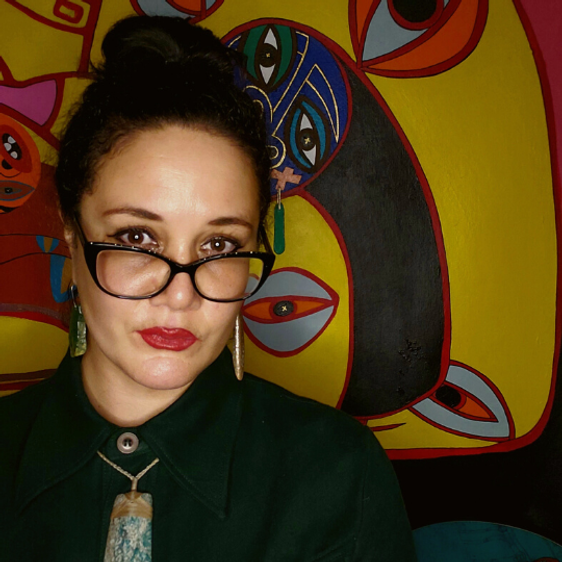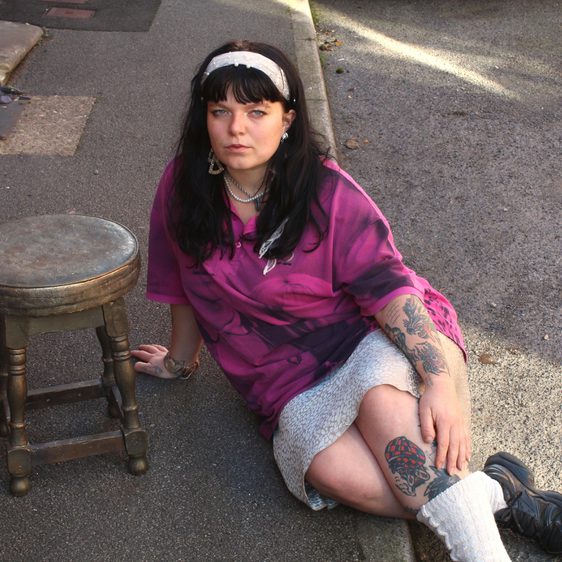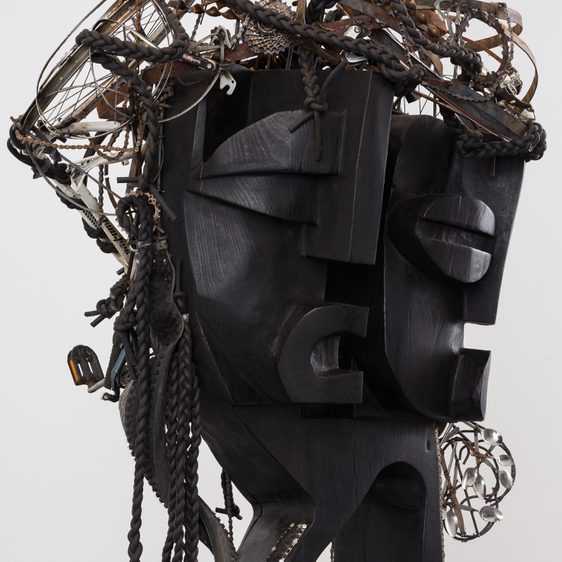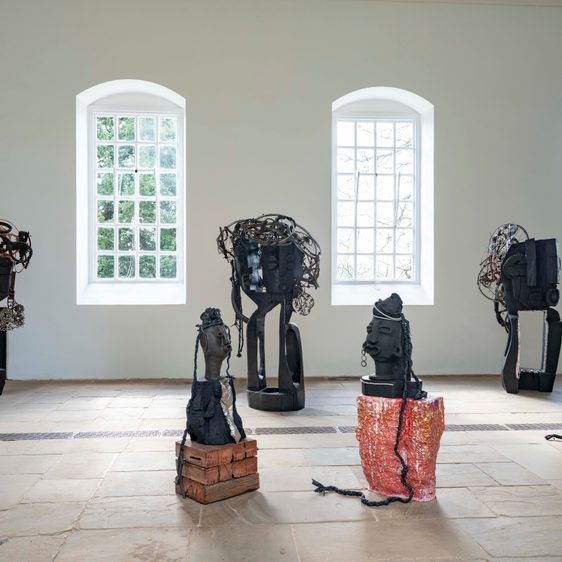Leilah Babirye
Leilah Babirye stayed at YSP for her residency over the summer. During the residency, Leilah conducted research and made new work for her major Chapel exhibition in 2024.
Babirye transforms everyday materials into sculptures that relate to identity, sexuality and human rights. The artist had to flee her home in Uganda after being outed as gay in a local newspaper in 2015. She was granted asylum in spring 2018 in the USA with support from the African Services Committee and the NYC Anti-Violence Project.
Babirye is now based in New York. Her sculptures often include rubbish from the streets of the city. A discriminatory word for a gay person in the Ugandan Luganda language is ‘abasiyazi’, meaning sugarcane husk. “It’s rubbish,” explains Babirye, “the part of the sugarcane you throw out.” Her sculpture figures are made from beautifully glazed ceramics, metal and hand-carved wood.
The artist often references traditional African masks to explore the diversity of LGBTQIA+ identities. In a similar vein, Babirye creates loosely rendered portraits in vivid colours of members from her community.
Opening on Saturday 23 March 2024, Leilah Babirye’s exhibition Obumu (Unity)features new sculptures made at YSP specifically for this exhibition, largely from materials found onsite.
“Through the act of burning, nailing and assembling, I aim to address the realities of being gay in the context of Uganda and Africa in general. Recently, my working process has been fuelled by a need to find a language to respond to the recent passing of the anti-homosexuality bill in Uganda.”
- Leilah Babirye
Leilah Babirye’s residency is especially appropriate as she was greatly inspired by Henry Moore during her school education. She will also participate in an AHRC-funded research project initiated by the Centre for Applied Human Rights at the University of York, which asks whether ‘the arts can save human rights’. The University of York recently opened a college named after David Kato. Kato was a Ugandan LGBTQIA+ activist who studied at the Centre for Applied Human Rights and was murdered in his home country.
More from Leilah Babirye
You may also like
- Profile

Melanie Tangaere Baldwin (Ngāti Porou)
YSP and Te Tuhi New Zealand-UK Residency Award - News

Working Class Creatives Database x YSP Residency 2023 artists announced
16 October 2023 - News

Yorkshire Sculpture Park announces 2024 programme celebrating diversity and personal discovery
10 January 2024 - Profile

Ami Horrocks
Yorkshire Graduate Award 2022
